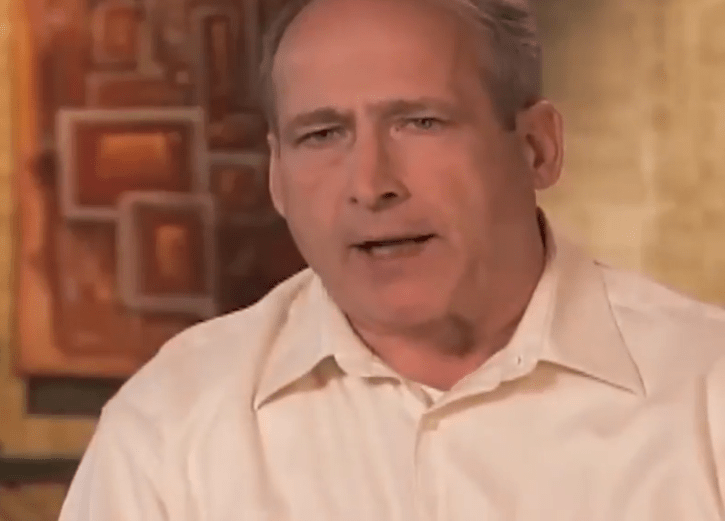ON a sweltering day in August 2004, a bewildering scene unfolded behind a Burger King in the US.
An unconscious, naked man was discovered by employees – his body ravaged by sunburn and fire ant bites.
Dr PhilBenjamin Kyle made headlines in his search for his identity – appearing on US talk shows[/caption]
WikipediaHe spent 11 years searching for his true identity[/caption]
Google mapsHe was found behind this Burger King branch in Richmond Hill, Georgia, USA[/caption]
It marked the beginning of one of the most perplexing mysteries in modern times – the story of the man who would come to be known as Benjaman Kyle.
Employees at Burger King in Richmond Hill, Georgia, stumbled upon the man – who was unresponsive and barely clinging to life.
He was rushed to a nearby hospital, where he woke with no memory of who he was, how he got there, or any details of his past.
Without identification, he chose the name Benjaman Kyle – inspired by the restaurant’s initials.
But it wasn’t a mere case of forgetfulness.
Kyle suffered from dissociative amnesia, a rare condition that erased his personal history.
He couldn’t recall his name, his family, or any aspect of his life before that fateful day.
For the next 11 years, Kyle lived in a state of limbo.
Law enforcement agencies – including the FBI – conducted extensive fingerprint and DNA analyses but found no matches.
Kyle’s case became a global phenomenon – with appearances on US talk shows Dr. Phil and Larry King Live.
But no one came forward with any information.
Kyle had fragmented memories – including vague images of Denver and Indianapolis, details about specific restaurants, roads, and landmarks.
Despite these snippets, nothing concrete emerged.
His identity remained a mystery – with his past a blank slate.
What is Dissociative Amnesia?
DISSOCIATIVE amnesia is a psychological condition characterised by an inability to recall important personal information, usually of a traumatic or stressful nature, that is too extensive to be explained by ordinary forgetfulness.
This condition is often associated with exposure to a traumatic event, and the memory loss can range from specific details to the inability to recall entire events or periods of time.
Dissociative amnesia can severely impact a person’s daily life, affecting their ability to function normally.
The condition is believed to be a coping mechanism to block out memories of traumatic experiences.
Treatment often involves psychotherapy, with the goal of helping the person recall and process the traumatic events in a safe and supportive environment.
LIVING LIKE JOHN DOE
Kyle’s life without a confirmed identity was fraught with challenges.
Without a Social Security number, he couldn’t secure employment or access government services.
He relied on shelters and the generosity of strangers, advocating for the homeless and those without identification.
He worked odd jobs under the table, his existence a precarious balance of survival and hope.
Kyle became a symbol of the bureaucratic nightmares faced by individuals without identification.
And his plight highlighted the systemic gaps that leave the most vulnerable without support.
THE BREAKTHROUGH
In 2011, forensic genealogist Colleen Fitzpatrick took an interest in Kyle’s case.
Using DNA analysis, she determined Kyle was related to the Powell family in the American South.
However, the exact connection remained unclear.
It wasn’t until 2015, when genetic genealogist CeCe Moore took on the case, that the mystery began to unravel.
Moore used Kyle’s DNA to compare with public genetic databases, painstakingly building a family tree and identifying living relatives.
Her efforts revealed that Benjamin Kyle was actually William Burgess Powell, born on August 29, 1948, in Lafayette, Indiana.
Powell had become estranged from his family in the late 1970s or early 1980s – and they had presumed him dead.
LIFE AS BEN
With his true identity revealed, Powell reconnected with his surviving family members.
“Many people had shared their DNA profiles so that they could be compared with mine,” Kyle wrote on his Facebook page.
“Through a process of elimination they determined my ancestral bloodline and who my relatives were.
“A DNA test taken by a close relative has confirmed that we are related.”
He was issued a new Social Security number and began the process of reclaiming his life.
“I wish to thank all of my friends who have supported me over the years with a big thank you to the people who have helped me with this mess,” he added.
The revelation brought closure to a long and distressing chapter – allowing Powell to rebuild his life with a new sense of belonging.
Kyle admitted he did have some hazy memories of his past in a previous interview with ABC News.
“I had no idea who I was. I couldn’t remember,” Kyle said in 2012.
“I had no idea how I got there.”
He said August 29, 1948, was his birth date and that he thought his name was Benjaman.
He also mentioned he might have previously worked in a restaurant because he could still operate the machines and maintain the stove.
When Kyle declared that he had located his family, he did not clarify if the memories he had previously experienced were true.
“You’ll find a lot of people who say it’s all bogus, that I’m faking it for whatever reason, but one thing’s for sure – I’m not getting rich out of it,” Kyle said.
“I’m 64. I’m trying to get on with my life as best as I can.
“I figure I’ve got 10 more years to live considering my social and economic bracket.
“I can’t make any long terms plans other than try to get along mostly day to day.”
Georgia Bureau of investigationsBenjamin Kyle was actually William Burgess Powell, born on August 29, 1948, in Lafayette, Indiana.[/caption]
Forensic genealogist Colleen Fitzpatrick helped Benjaman find out who he really isheritageetal

